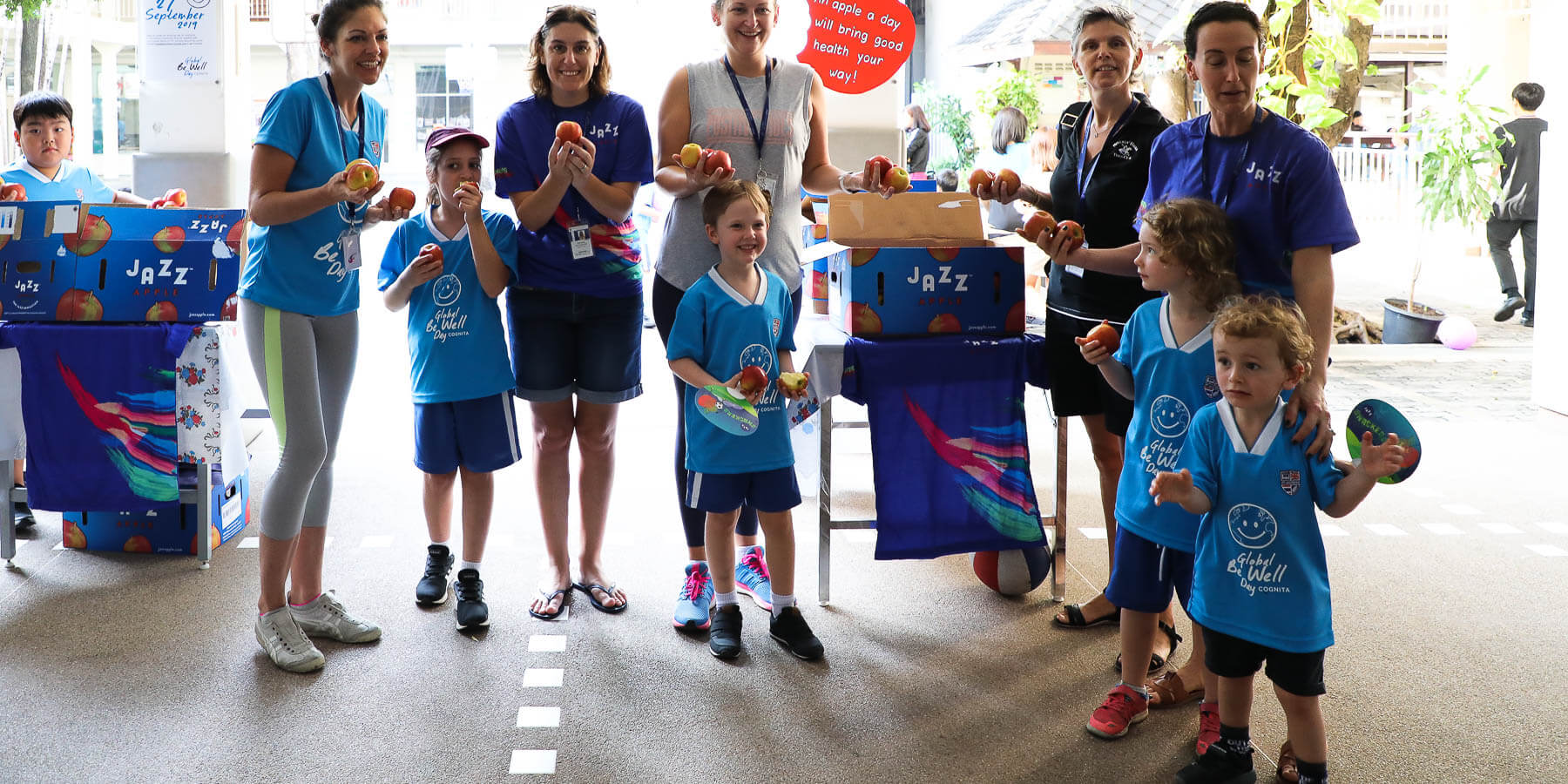We have a special day called Be Well Day celebrated across the Cognita schools for various attributes of well being (sleep, eat and the likes).
Why is well-being important and how is it being implemented at Sathorn
The challenges our children face in a faster-paced world are ones that educators are more concerned about than ever. For some years the media has been publishing stories about the decline in children’s physical health and the issue of obesity, as well as the growing number of children displaying symptoms arising from stress and anxiety.
The Prioritising Wellbeing in Schools report by British organisations Wise Up and Young Minds, points out that over the course of their education, children spend over 7,800 hours at school. With so much time spent at school, it makes schools an ideal environment for promoting wellbeing. It is also widely recognised that the social and emotional skills, knowledge and behaviours that young people learn in the classroom can help them to build resilience and set the pattern for how they will manage their physical and mental wellbeing throughout their lives.
Furthermore, the report states: “Emotional wellbeing is a clear indicator of academic achievement, success and satisfaction in later life. Evidence shows that wellbeing programmes in schools can lead to significant improvements in children’s mental health, as well as their social and emotional skills.
Well-being at St. Andrews Sathorn
Wellbeing is the foundation of a Cognita Education and it is integral to our overall purpose of ‘Providing an inspiring world of education: building self-belief and empowering individuals to succeed’. The Cognita ‘Be Well’ charter provides a number of initiatives, including a Global Be Well Day, which is an annual event at St. Andrews Sathorn. On that day, the entire school focuses on well-being activities and learning, such as the importance of sleep, healthy eating and exercise.
At Sathorn we also implement actions and activities that enhance the children’s well-being in a number of other ways. The first of these is our Safeguarding policy. We have a strong safeguarding culture at St. Andrews Sathorn and all our staff and volunteers are committed to keeping children safe, to ensuring the well-being of our school community and to promoting a culture of care. These include:
- A rigorous safer recruitment process
- Regular safeguarding training for all staff
- Independent safeguarding reviews
We also ask external agencies for support when necessary and have good links with a range of support services such as counselling, psychologists, SEN specialists and behaviour therapists. Most importantly, we have a designated member of staff who has responsibility for this entire area, and parents will always find her door open if they have any concerns.
Because we are a small, close-knit community, and are very fortunate to have close ties with our parent community, as well as a cohesive team of teachers who know all of our children in school. In this respect we are better placed than larger campuses to focus on well-being alongside academic excellence.
Our PE programme and sports facilities play a central role in our children’s physical health, and they are also taught about the importance of healthy eating and why they should exercise. Any PE programme is more effective when children grasp why they are doing it! And our creative curriculum encourages emotional well-being, as do the many classroom activities involving play for the youngest members of our community.
Ultimately, it is because of the importance we place on the value of ‘community’ that St. Andrews Sathorn is able to provide an environment with well-being as one of its cornerstones, and the entire school team has a sense of pride when we see the children grow in a way that encourages a healthy future life.






